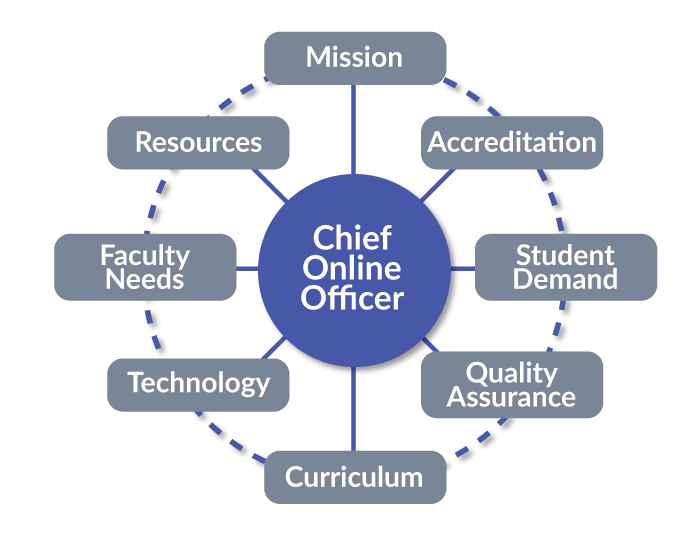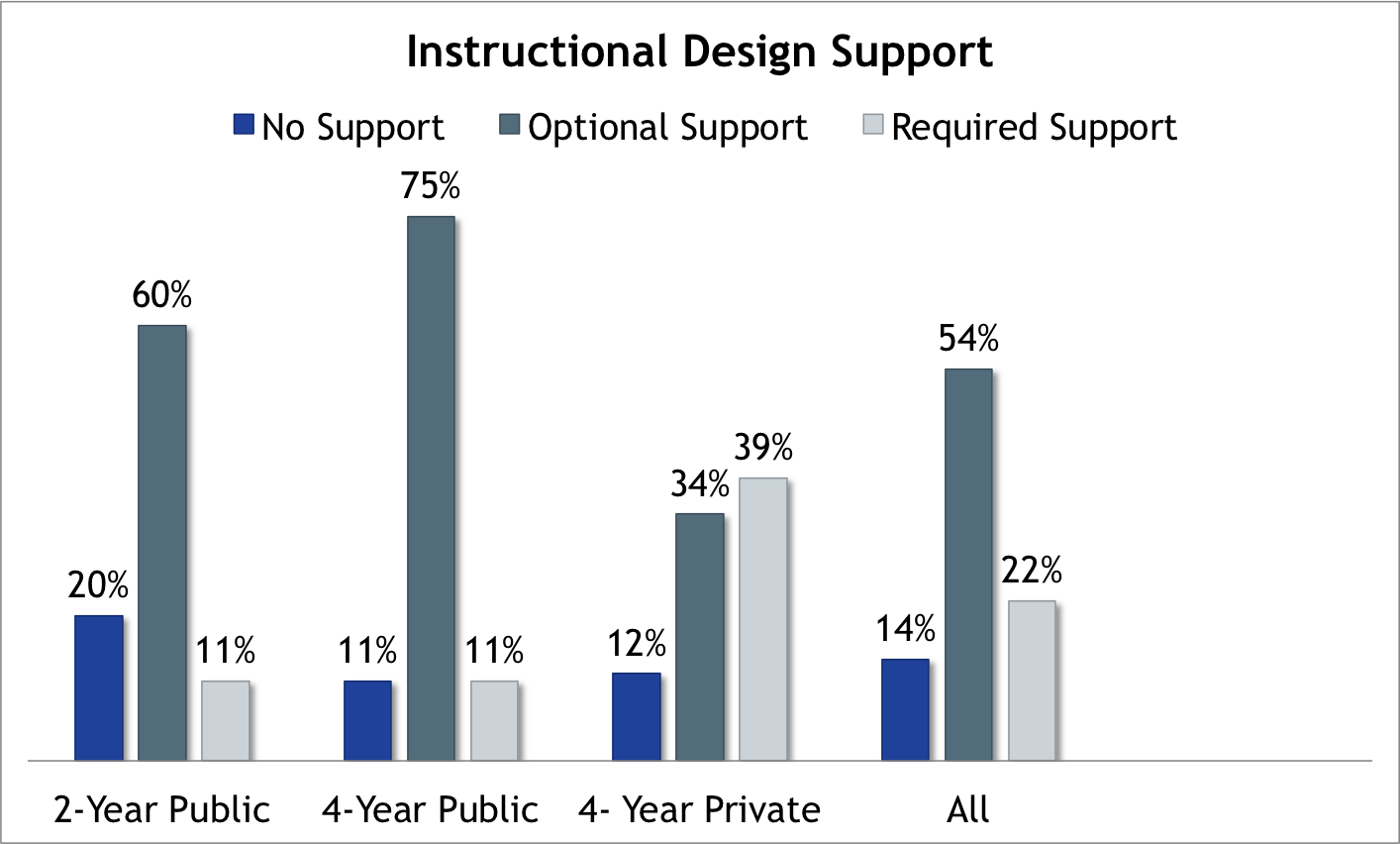Quality Matters and Eduventures Survey Examines Current Trends in Online Education to Help You Find Out

Chief Online Officers sit at the crossroads of several areas within their institutions.
As online education shifts from a new form of education to a mainstream activity for a growing proportion of higher education institutions, there is an increased need to examine this changing landscape including how it is managed. Unfortunately, there is a gap in information available. Previous surveys related to online education are no longer being conducted. And other areas of importance have not been closely examined. That is why Quality Matters teamed up with Eduventures, a leading research and advisory firm. The goal was threefold:
- To examine the changing landscape of online education
- To provide this information to those who can use it
- To help those involved with online education place their institution within a broader context and possibly influence strategic decisions and organizational changes
To meet those goals, QM and Eduventures surveyed chief online education officers — those who manage online education for their institutions. The survey, “CHLOE: The Changing Landscape of Online Education,” aimed to establish some baseline information from the institution-level viewpoint on important trends in the management, financing, technology, and quality assurance of online education in the U.S. Specific topics examined included resources and management of online learning, emerging tools and methods in the field, regulation and accreditation challenges, and quality assurance activities.
Here’s a snapshot of some of the findings:
- Chief online officers believe that the market for online programs has become much more competitive over the past five years.
- In contrast to the recently published WCET study that reported overwhelming opinion in higher education that it costs more to offer online programs, more than half of the chief online officers responding to the CHLOE Survey believe that online programs generate net revenue for their institutions.
- Nearly 40% of private nonprofit colleges require faculty to use instructional design support in building their online courses. In contrast, only about 11% of two and four-year public institutions do so.

On May 9, 2017, the Eduventures Wake-Up Call featured findings on the future of online course development, pricing of online offerings, and objectives for online programs from the perspective of the chief online officers who responded to the first administration of the survey. A clip from the briefing provided to the first survey participants is also available on our YouTube channel.
The CHLOE project is being led by QM Executive Director Emeritus and Senior Adviser for Knowledge Initiatives Ron Legon and Eduventures Chief Research Officer Richard Garrett. The second CHLOE survey will be administered in June 2017 with the goal of greater participation and a refinement of the survey questions to obtain more detailed results on key issues.
Chief Online Officers who wish to ensure that their views will be solicited in further CHLOE surveys should contact Barbra Burch.
